By Patrick Obia
A one-day capacity building session focused on strengthening accountability and transparency in Nigeria’s methane emissions management, has ended with stakeholders brainstorming on reforms for achieving national and global reduction targets.
The event organized by Paradigm Leadership Support Initiative (PLSI), in collaboration with Natural Resource Governance Institute (NRGI) held at Stratton Hotel, Asokoro Abuja of Nigeria’s capital, the session was geared to equip civil society actors and the media with the skills to advocate for stronger methane regulations, featuring sessions led by industry experts and stakeholders.
The Program Officer of PLSI, Monsuru Olatunji and the Program Officer of NRGI Ahmad Abdulsamad, in their pep introduction said the issues of methane emissions is very important and worth talking about as it poses a serious threat to the environment, livelihood and climate change.
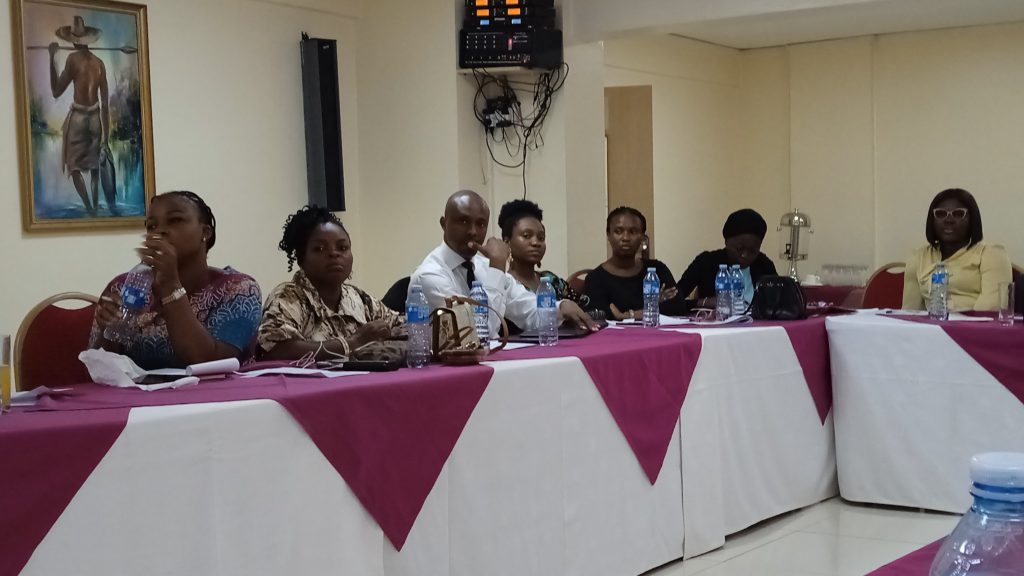
Both Officers affirmed that the training is necessary as CSOs, and the media have to talk about these issues of emissions reduction and hold the government and companies in the extractive industry accountable to meet the target.
Speaking on the ‘imperative of managing methane emissions in Nigeria’, the Senior Officer, and Lead, Nigeria Program of NRGI, Tengi George-Ikoli, highlighted the significance of legislative and regulatory reforms in achieving national and global emissions reduction commitments.
Presenting on ‘Regulatory approach to methane emissions: aligning upstream regulatory reforms with Nigeria emission target’, the Deputy Director, Head of Regulations and Statutory Compliance Department of the Nigerian Upstream Petroleum Regulatory Commission (NUPRC) – Mr. Kingston Ezeugo Chikwendu, said Nigeria like many countries, has committed to the international efforts to combat climate change by signing the Paris Agreement in 2016 and ratifying it in 2017. The Paris Agreement, he said, set a long-term goal of keeping the global coverage temperature well below two degrees above pre-industrial levels and pursuing efforts to limit the temperature increase to 1.5 degrees above pre-industrial levels.
He averred that Nigeria through the NDC set the unconditional Greenhouse Gas (GHG) emissions reduction target at 20% BAU-Conditional reduction by 2030; 47% conditional (with international support) reduction by 2030; Net-zero by 2060; working towards ending gas flaring by 2030, and 60%reduction in fugitive methane emission by 2031.
The Deputy Director disclosed that efforts are on gear to shut down 49 flaring sites across the county.
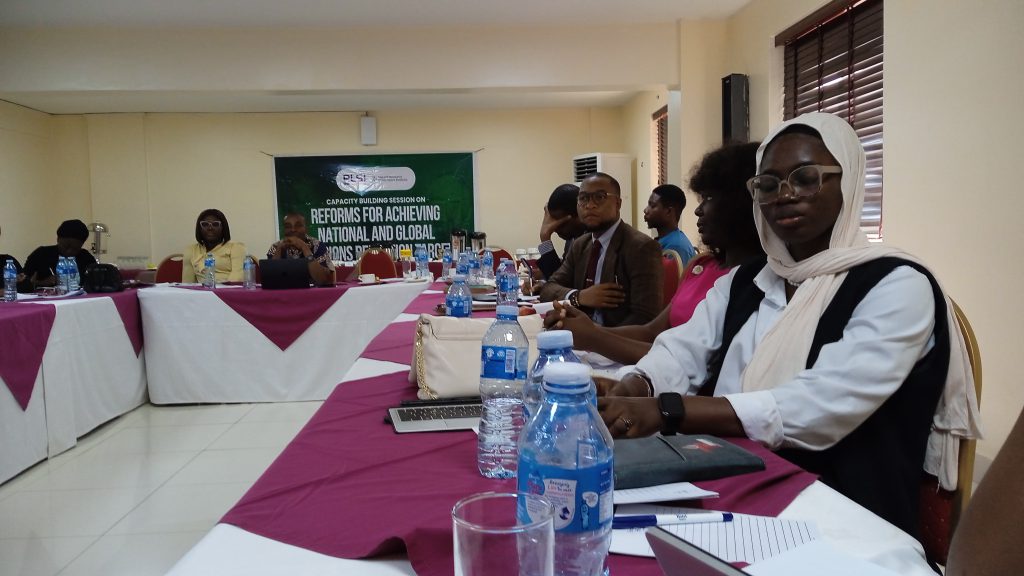
Legal practitioner, Ajumogobia Okeke, Esq., speaking on ‘Strengthening Nigeria’s methane emissions framework- proposing policy, legal, and regulatory reforms to drive corporate compliance and public accountability’ highlighted identified gaps in Nigeria’s methane emissions framework. He opined that there is a need to extend requirements to cover refineries, gas distribution networks, Liquified Natural Gas (LNG) facilities and industrial gas users; set strict reporting and verification requirements for methane emissions in the mainstream and downstream petroleum operations.
The lawyer expressed worries that the enforcement measures under the Climate Change Act are weak; positing that more offences should be created in the Act to punish failure to comply with the statutory obligations in the Act; amend the Petroleum Industry Act (PIA) to confer power on Nigeria Mainstream and Downstream Petroleum Regulatory Agency (NMDPRA) to take flare gas just as the NUPRC is empowered to.
Mohammed Dahiru Aminu of Clean Air Task Force, making his presentation on ‘Significance designing regulations in alignment with the EU Methane Emissions regulations’ said Methane Intensity Performance Standard in the Summary of the European Union’s forthcoming intensity standard, states that in 2027, the European Commission will set a methodology for calculating methane intensity at the level of the producer, taking into account existing methodology and best practices.
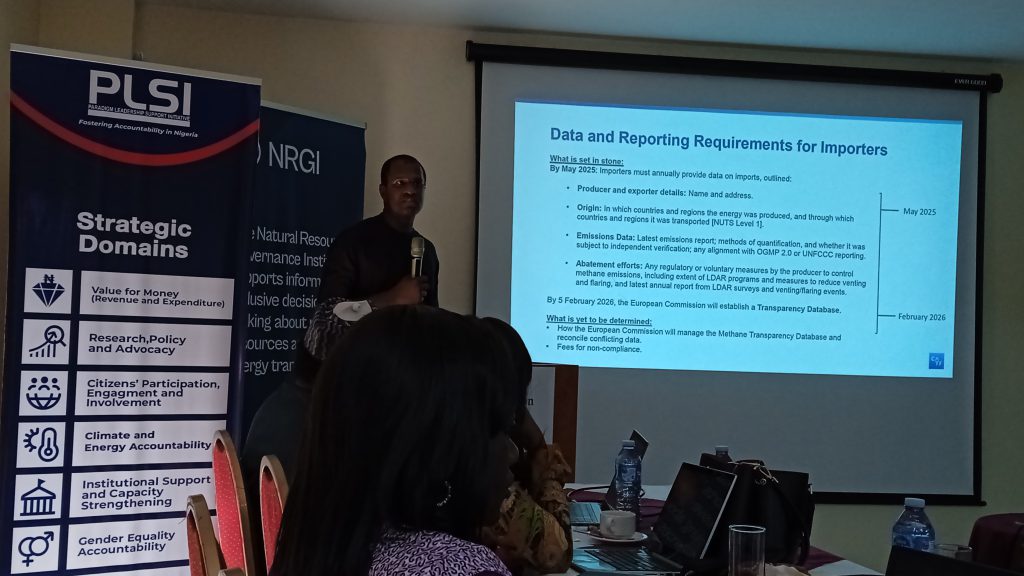
“In 2028, producers will begin reporting based on the methodology for all supply contracts agreed after the regulation’s entry into force. In 2029, the European Commission will publish a report outlining the impacts of various maximum intensity thresholds, taking into consideration future supplies up to 2049. In 2030, importers must demonstrate that imports are below the maximum intensity thresholds.”
Introducing the “Emissions Compliance Monitoring and accountability Tool (EMCAT),” Program Officer of Paradigm Leadership Support Initiative (PLSI), Monsuru Olatunji, disclosed that the tool is designed to help CSOs, media, and policy advocates access credible and structured data on methane emissions related government actions.
Olatunji said the tool designed by NRGI and PLSI which is still in process will assist policy advocates, the media, CSOs to track and monitor projects, companies and organizations.
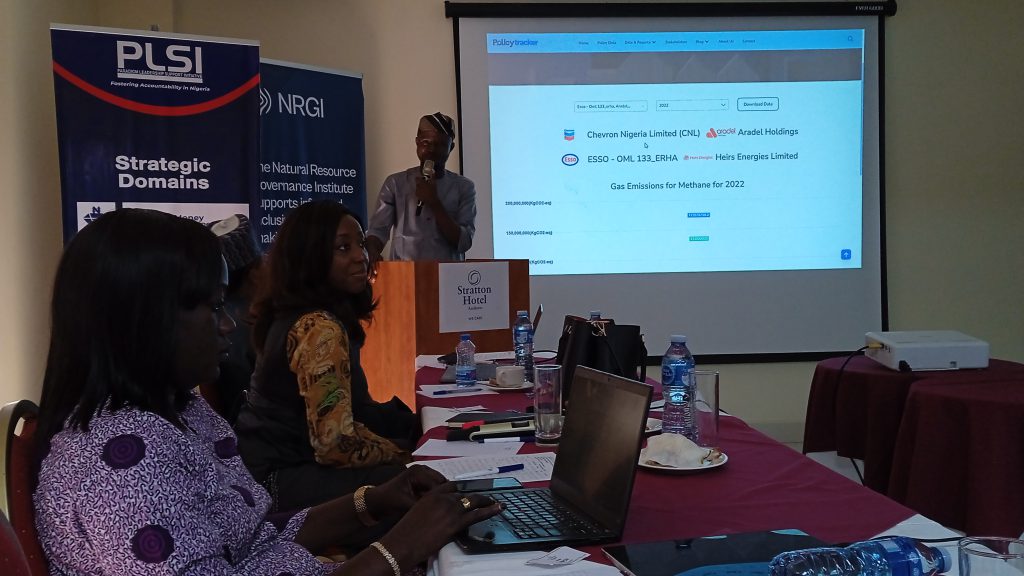
During the capacity building, it was disclosed that 15 out of the 62 companies have made known their audit reports as contained in the NEITI report published in 2022/2023.
Highpoint of the capacity building was a practical session on the EMCAT Tool, questions and answer sessions as well as a group photograph.
Since You Are Here, Support Good JournalismCrossRiverWatch was founded on the ideals of deploying tech tools to report in an ethical manner, news, views and analysis with a narrative that ensures transparency in governance, a good society and an accountable democracy. Everyone appreciates good journalism but it costs a lot of money. Nonetheless, it cannot be sacrificed on the altar of news commercialization. Consider making a modest contribution to support CrossRiverWatch's journalism of credibility and integrity in order to ensure that all have continuous free access to our noble endeavor. CLICK HERE |
New Feature: Don't miss any of our news again.Get all our articles in your facebook chat box.Click the Facebook Messenger Icon below to subscribe now
Text Advert by CRWatch :Place Yours

Will You To Learn How To Make Millions Of Naira Making Special Creams From Your Kitchen?.Click Here
Expose Your Business And Make More Sales. Advertise On CrossRiverWatch.com Today

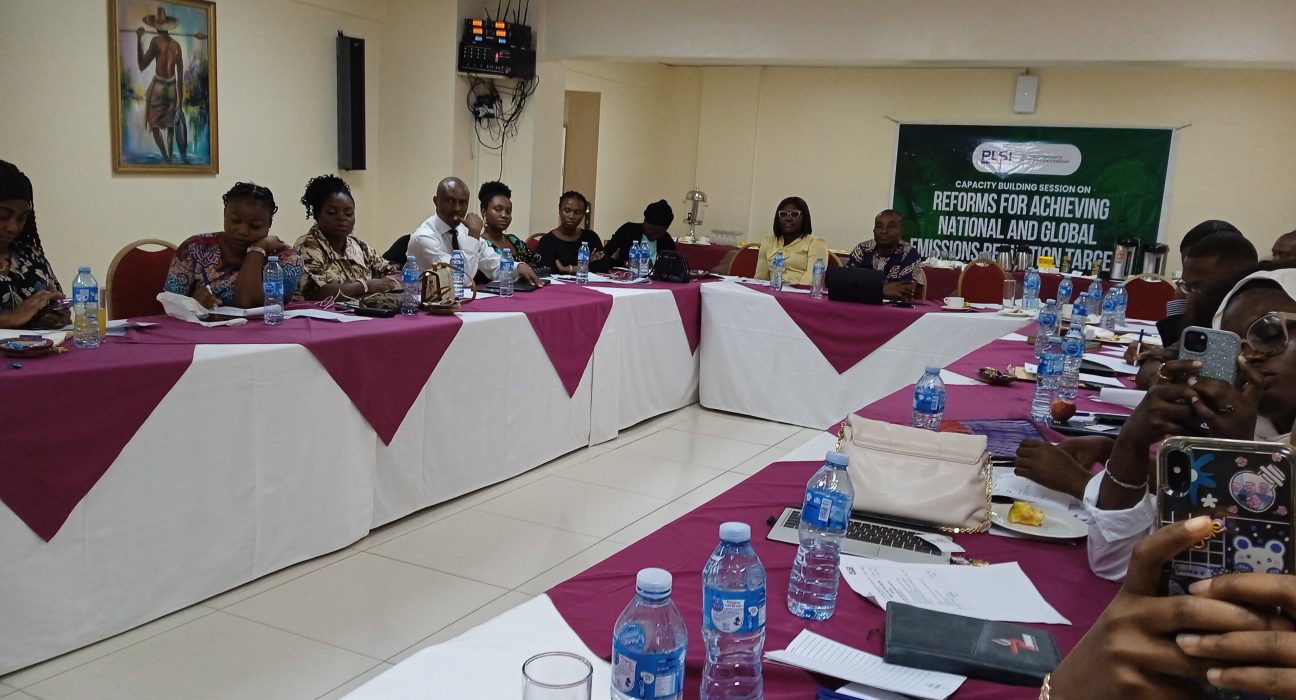

Leave feedback about this